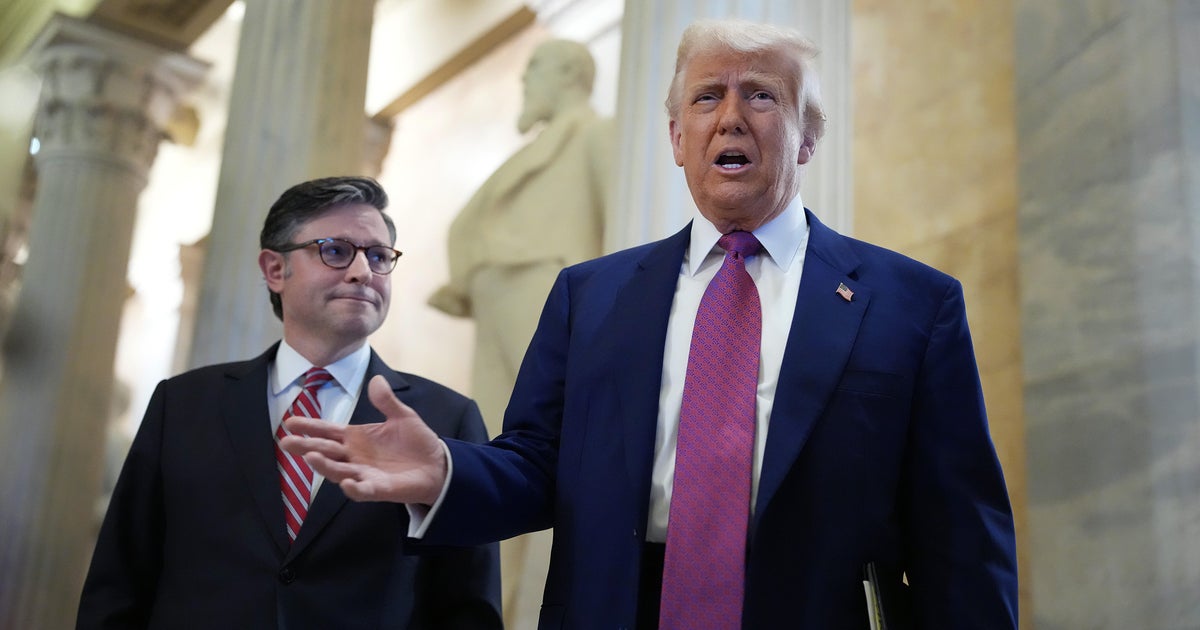Trump's Landmark Budget Bill Passes Congress

The United States Congress has successfully passed President Donald Trump’s comprehensive budget bill, marking a significant legislative victory for the former president. Following days of intense debate and extensive overnight sessions in both the House of Representatives and the Senate, the sprawling package, central to Mr. Trump’s policy agenda, is slated for a signing ceremony on July 4th. Described by its supporters as “transformational,” the legislation encompasses wide-ranging economic and spending measures that have captivated Capitol Hill.
The bill's passage saw the House approve the measure in a 218-to-214 vote, while the Senate narrowly passed it in a 51-to-50 vote, necessitating Vice President JD Vance to cast the tie-breaking vote. This controversial spending and tax bill, dubbed the ‘big, beautiful bill’ by President Trump, was pushed through using the budget reconciliation process, which allows certain policies to pass with a simple majority. Despite some provisions being removed, such as the sale of public lands or a pause on AI regulations, the final 887-page Senate-crafted version was ultimately approved by the lower chamber.
At the core of the legislation is a permanent extension of most of the tax cuts from Trump’s 2017 Tax Cuts and Jobs Act, which were previously set to expire. The bill also includes a substantial increase to the cap on the state and local tax (SALT) deduction, raising it from $10,000 to $40,000 for five years before reverting. Furthermore, it significantly raises the debt ceiling by $5 trillion, surpassing the initial $4 trillion proposed in the House's version.
The package allocates substantial funding towards key Trump administration priorities, including over $46.5 billion for border wall construction and related expenses, and $45 billion to expand detention capacity for immigrants. Additionally, approximately $30 billion is earmarked for hiring, training, and other resources for U.S. Immigration and Customs Enforcement (ICE). A minimum $100 fee for asylum seekers was also included, a reduction from the $1,000 fee initially proposed by the House.
However, the bill introduces significant cuts to crucial social programs. It imposes restrictions on Medicaid, the government-sponsored health care program for low-income and disabled Americans, by implementing work requirements for some able-bodied adults and more frequent eligibility checks. The Congressional Budget Office (CBO) estimates that these changes could lead to 11.8 million to 17 million Americans losing health coverage over the next decade. To mitigate concerns from some Republican senators regarding the impact on rural hospitals, the bill includes a $50 billion rural hospital stabilization fund, though it also proposes incrementally lowering provider taxes from 6% to 3.5% by 2032.
Other controversial provisions include the termination of numerous tax incentives from the 2022 Inflation Reduction Act that supported clean energy, electric vehicles, and energy efficiency programs. This effectively ends tax credits for new and used electric vehicles, home EV charging equipment installation, and energy-efficient heating and cooling systems. The bill also discontinues the Greenhouse Gas Reduction Fund, which provided funding for pollution reduction projects. Additionally, it shifts the costs of the Supplemental Nutrition Assistance Program (SNAP), or food stamps, to some states, a program traditionally fully funded by the federal government.
The bill faced fierce opposition, particularly from Democrats, who argued that its provisions would disproportionately benefit the wealthy and exacerbate inequality. In a dramatic display of dissent, Democratic Minority House Leader Hakeem Jeffries spoke for over eight hours on the House floor, setting a new record and underscoring the deep ideological divide. The CBO also projected that the bill would add $3.4 trillion to federal deficits over the next 10 years, a forecast disputed by Republicans and the White House. High-profile figures like billionaire Elon Musk also voiced their opposition, citing concerns about ballooning national debt and the gutting of health and welfare support.
Despite the strong opposition, Republican lawmakers hailed the legislation as a vital step to stimulate economic growth and restore fiscal discipline. President Trump celebrated the outcome, calling it “a tremendous win for the American people” and expressing confidence that the new law would “turbocharge the economy, create jobs, and strengthen America’s future.” The signing ceremony on July 4th at the White House is designed as a pomp-laden event, coinciding with Independence Day, and is expected to feature fireworks, a flypast by a B-2 stealth bomber, and attendance by pilots involved in recent military operations.
This legislative achievement underscores President Trump’s continued dominance over both the Republican Party and U.S. politics. While Democrats hope public opposition to the bill, particularly regarding its redistribution of wealth from the poorest to the richest Americans, will aid them in the 2026 midterm elections, the passage of this bill signifies a major fulfillment of Trump’s second-term campaign promises.











